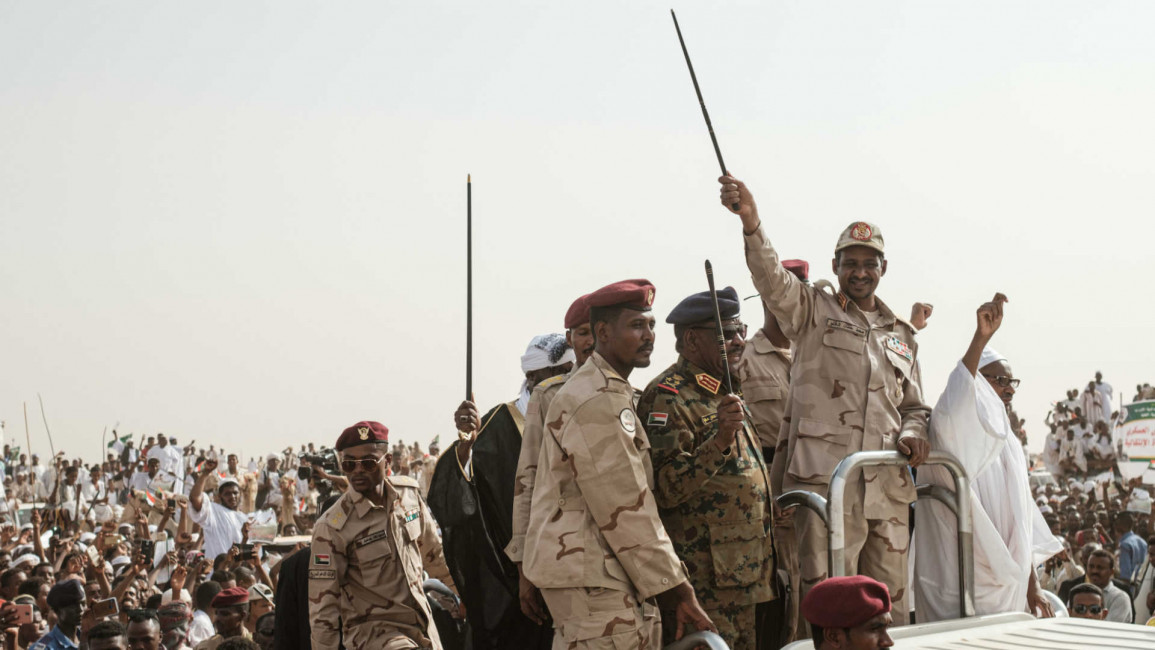Sudanese military junta says new joint AU, Ethiopian plan could restart negotiations
Sudan's ruling military junta said on Friday that a new, joint proposal drafted by Ethiopia and the African Union could be a base to resume negotiations with protesters on forming a transitional government.
The AU and Ethiopia formulated a blueprint for transitional rule in Sudan after the country's army rulers last week called on the two to unify their efforts.
The generals seized power after the army ousted longtime dictator Omar al-Bashir on 11 April following months of widespread protests against his thirty-year rule.
But since then the junta has resisted calls to handover power to a civilian administration, with negotiations between protest leaders and the generals finally coming to a halt in the beginning of June, when Sudan's armed forces massacred more than a hundred people.
"Although the transitional military council has some observations, the joint proposal from the African Union and Ethiopia can be a base for starting negotiations to form an interim authority," General Shamseddine Kabbashi, spokesman of the ruling military council said in a brief statement broadcast on state television.
|
|
"The Transitional Military Council is ready to negotiate to have an interim authority."
The joint proposal would entail creating a 15-member, civilian-majority governing body for a three-year transitional period - a plan that matches protest leaders’ demands during previous negotiations.
But the proposal makes no mention of the composition of a new transitional parliament.
Read more: Two revolutions, one struggle: As Algerians, we stand with Sudan
An earlier proposal drafted by Ethiopia had stipulated a legislative body of 300 lawmakers, with 67 percent of them drawn from the Alliance for Freedom and Change (AFC), an umbrella opposition group representing protesters' demands.
The remaining 33 percent were to be from other political groups, excluding deposed ruler Bashir's National Congress Party.
The AFC had last week announced its acceptance of Ethiopia’s earlier proposal but Sudan's military council had expressed reservations, urging Addis Ababa and the AU to come up with a joint proposal.
Ethiopia and the African Union have stepped up diplomatic efforts to resolve the crisis in Sudan, which has been wracked by tensions between the protest leaders and generals.
Existing tensions were exacerbated by the 3 June bloody dispersal of a long-running sit-in outside the army headquarters in Khartoum.
Armed forces - including the Rapid Support Forces (RSF), an officialised paramilitary offshoot of the Janjaweed militias accused of war crimes in the Darfur conflict - attacked protesters with live ammunition. Eyewitnesses allege that tens of women and men were raped and that tens of dead bodies were thrown into the River Nile.
The break-up of the rally came after talks between the generals and the AFC stalled over the composition of a new ruling body and who should lead it - a civilian or soldier.
About 130 people have been killed since the crackdown, the majority of them on that day, the Central Committee of Sudanese Doctors (CCSD) says.
The health ministry puts the 3 June death toll at 61 nationwide.


![President Pezeshkian has denounced Israel's attacks on Lebanon [Getty]](/sites/default/files/styles/image_684x385/public/2173482924.jpeg?h=a5f2f23a&itok=q3evVtko)



 Follow the Middle East's top stories in English at The New Arab on Google News
Follow the Middle East's top stories in English at The New Arab on Google News


